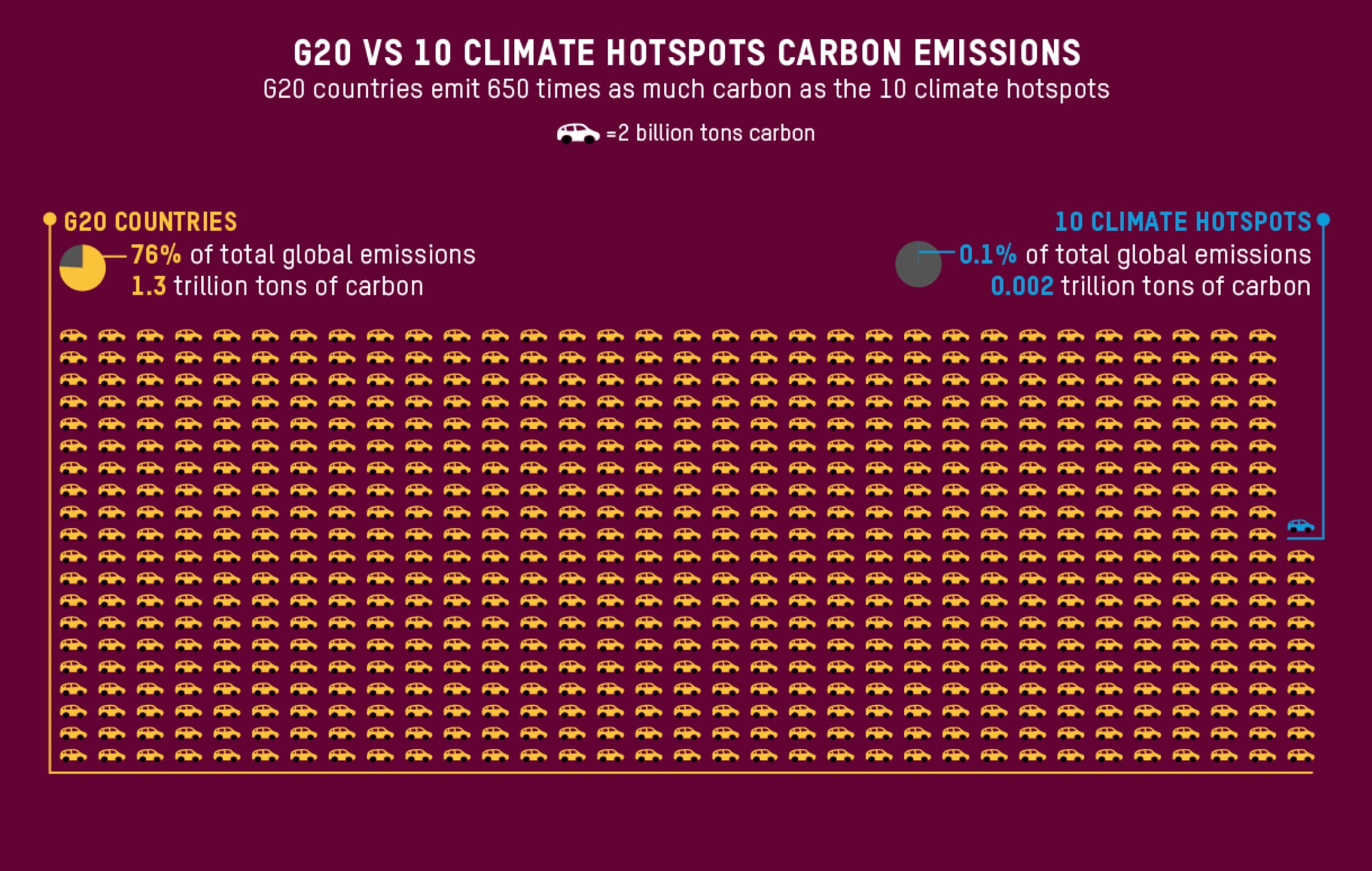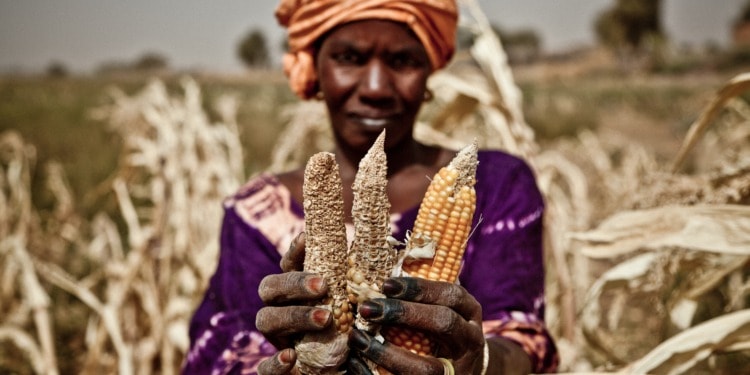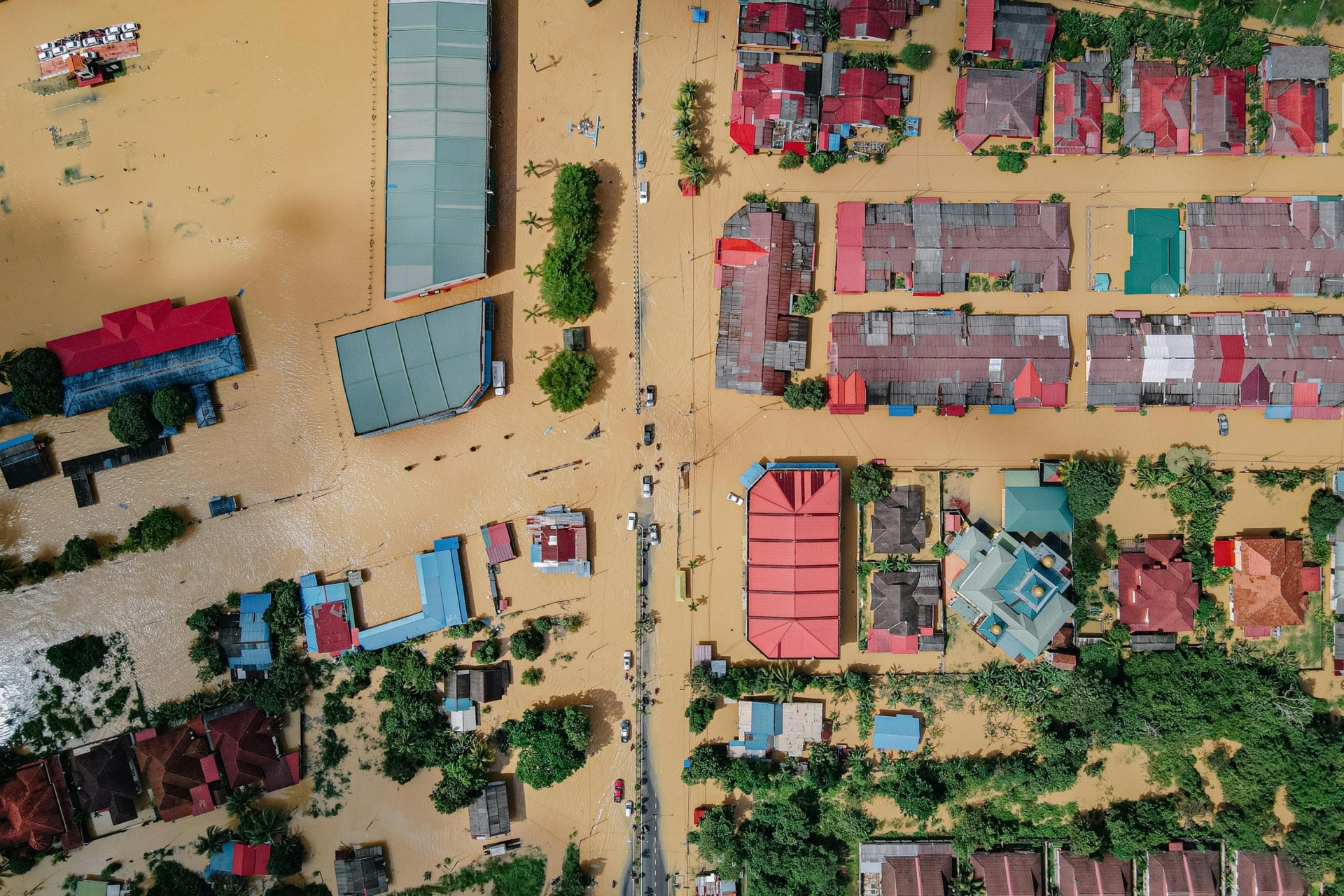In Pakistan, an area the size of New Zealand is now underwater due to melting glaciers and unprecedented monsoons. Somalia has not had a successful rainy season since late 2020 – an unprecedented two-year dry spell not witnessed for more than 40 years.
“Our climate isn’t just changing, it has changed,” write the authors of the latest Oxfam report, revealing the link between extreme weather events and extreme hunger in 10 of the world’s climate hotspots.
“The climate crisis is fuelling hunger in an already hungry world,” says Oxfam.
Ahead of #climateweeknyc 2022, we are releasing our report Hunger in a heating world, the 10 worst climate change hotspots around the world have seen acute hunger more than double since 2016.https://t.co/tgXeVJ33UL pic.twitter.com/guaU4A30iD
— Oxfam International (@Oxfam) September 16, 2022
“Hunger in a Heating World”
The report, “Hunger in a Heating World,” is the charity’s latest urgent appeal for the worldwide community to wake up to the reality of escalating climate change causing a striking rise in global hunger, with weather extremes now pushing 18 million people to the brink of starvation.
The report examined 10 climate hotspots with the highest number of extreme weather-related UN appeals since 2000: Afghanistan, Burkina Faso, Djibouti, Guatemala, Haiti, Kenya, Madagascar, Niger, Somalia and Zimbabwe. As a result of hotter, wetter or drier weather, these countries are “plunging into deeper hunger.”
According to the report, the number of people now facing climate-induced extreme hunger across these 10 nations has more than doubled in the past six years, rising by 123% from 21 million to an astonishing 48 million.
“Global hunger began to rise before the pandemic and has never recovered,” explains UN Chief Antonio Guterres.
In the report, Oxfam explored the escalation of “major climatic events” across seven regions:
- Asia’s typhoons
- East Africa’s drought
- South Africa’s cyclones
- The Sahel’s drought
- Latin America’s dry corridor
- The Pacific sea-level rise
- Water scarcity in the Euphrates and Tigris River basins
“The correlation between weather-related crises and rising hunger in these countries, and others, is stark and undeniable,” the report concludes.
In Asia, the destructive power of intensifying cyclones, typhoons, and monsoons is expected to double by the end of the 21st Century and push 38 million more people to hunger by 2030.
Southern Africa is warming twice as fast as the rest of the world, experiencing repeated devastation to crops, livestock, and infrastructure as a result of intensifying cyclic climatic shocks in the form of drought and floods.
In East Africa, one person dies of drought-induced hunger every 48 seconds.
“Climate change is no longer a ticking bomb, it is exploding before our eyes,” says Gabriela Bucher, Oxfam International Executive Director.
As United Nations World Food Programme (WFP) Chief David Beasley put it, a “ring of fire” is stretching across the world, all the way from Sudan to Afghanistan to Central America.
The worst drought in 70 years has left more than 16 million people across Ethiopia, Kenya, and Somalia facing crop failures and a shortage of drinking water. Satellite data on rainfall and soil moisture help forecast acute food insecurity.
Details: https://t.co/ur6d4pNuct pic.twitter.com/aX9VVtPJb3
— NASA Earth (@NASAEarth) September 6, 2022
The escalation in climate-related extreme weather is not only “destroying homes” and “decimating livelihoods” but is also “fuelling conflict and displacement, and deepening inequality,” says Oxfam.
“Worsening vulnerabilities, widening inequality”
As Oxfam explains in the report, the causes of global hunger are complex and nonlinear.
Along with a severe hike in food prices, the key drivers of food insecurity are conflict, economic disruption and political instability, resulting in widespread inequality that adds pressure to food supply and undermines food security.
The report discloses how climate change and related extremes in weather are hunger “threat multipliers,” catalyzing the destabilization of societies and economies already exacerbated by the fallout of the Covid-19 pandemic.
Related Articles: Three Ways to Avoid a Crisis Amid Soaring Food Prices and Rising Hunger | Windfall Tax on Covid Profits Could Ease ‘Catastrophic’ Food Crisis, Says Oxfam | How Big Companies Can Help End Hunger | Earth is Dying: UN Chief Accuses World Leaders of Zero Action
“For millions of people already pummeled down by ongoing conflict, widening inequalities, and economic crises, repeated climate shocks are becoming a backbreaker,” says Bucher.
We’ve seen this most recently in Haiti, a country that the UN says is “grappling with multiple crises of an economic, political, security and humanitarian nature,” where due to “violent civil unrest” humanitarian aid is unable to be delivered to those in need.
“Not all climate change impacts are equal”
The report goes on to address how “disadvantaged people are hit hardest” by climate change. Countries that feel most of the climate-related fallout are both least responsible and least prepared to cope or bounce back.
“Not everyone is feeling the burn of this climate crisis equally,” says Oxfam, stating that a perpetuating “vicious cycle of devastation” is “widening the global inequality gap.”
The report exposes disparity between the existential crisis felt in developing countries and the profits gained in the wealthiest G20 nations.
The big emitters of the developed world control 80% of the world’s economy, account for almost 80% of emissions – but feel least of the fallout.
Contrastingly, the 10 climate hotspots continue to lose their homes, livelihoods and vital life sources, whilst only contributing a mere 0.13% to total global emissions. Africa alone has suffered losses of $38.5 billion due to climate-related disasters between 1970-2019.

“Whether it is Pakistan, the Horn of Africa, the Sahel, small islands or Least Developed Countries, the world’s most vulnerable – who did nothing to cause this crisis – are paying a horrific price for decades of intransigence by big emitters,” said UN Chief Antonio Guterres, in his opening speech for the 77th UN General Assembly last week.
Oxfam mirrors the UN’s recent call for financial support, stating that “rich polluting nations” should “immediately inject life-saving funds” to address the climate-induced hunger crisis.
They also reveal that a mere 18 days of profit gained by G20-owned fossil fuel companies, would cover the entirety of the $48 billion of humanitarian aid the UN recently appealed for.
Read more:https://t.co/tgXeVJ33UL
Money, Money, Money, let’s talk about money. Let’s talk about money. Just 1% of the fossil fuel companies’ average annual profit = $10B. Almost enough to cover the U.N. humanitarian food security appeal funding gap. #ActOnClimate pic.twitter.com/rg74ImjSxR— Oxfam International (@Oxfam) September 19, 2022
Oxfam’s Chief has also highlighted that if food, fossil fuel and pharmaceutical companies were asked to pay a 90% tax on their excessive Covid-19 profits, this fortune could be reallocated to help solve current food insecurities, and also to build resilience in food systems to prepare for inevitable crises to come.
What’s more, even the financial support that is available might not make it to those in need, as Australian climate researchers recently reported that due to ill-informed central banking models and irregular climate-induced weather patterns, central banks could be misallocating trillions of dollars to the wrong climate threats.
Governments must take immediate action to save lives
Oxfam’s central message to G20 nations is clear. Urgent humanitarian action is required to save lives and control the impacts of the current climate and hunger crises, whilst significant policy change is also necessary to mitigate further crises, and to prepare vulnerable countries for more inevitable “climate shocks.”
Oxfam’s Chief called for developing world debts to be cleared, and insisted the “leaders of rich polluting countries must live up to their promises to cut emissions.”
Collectively, Oxfam calls upon the developed world to:
- Drastically reduce emissions
- Provide emergency assistance to save lives now
- Fairly compensate those most impacted by the climate crisis
- Prepare poor countries and poor people for the next climate shock
- Build fairer, more resilient, and more sustainable food systems
- Provide safe and legal avenues for people forced to move due to climate change
- Ensure a gender-sensitive climate response
As part of the proceedings of the current UN General Assembly, Oxfam is calling upon the world’s wealthiest to stamp out climate injustice and proactively provide humanitarian aid to those worst affected by climate-induced famine, ahead of multilateral talks at COP 27 in November.
“This is an ethical obligation, not charity,” says Bucher, with the report warning that failure to do so will result in the situation getting much worse, as the current humanitarian aid system the world is relying on “was not designed nor resourced to respond to cyclical shocks of such scale and frequency.”
As the UN continues to shock the world with a series of damning reports on “climate tipping points” and rising global pollution levels, the timing of Oxfam’s call to act upon SDG 2 “Zero Hunger” couldn’t be more urgent.
But, with the ongoing geopolitical tensions like the war in Ukraine felt across much of the world, the prospects of proactivity and progress towards the common goals and 1.5°C climate coalition reinforced at last year’s COP 26 are on dangerously thin ice.
— —
Correction: This article has been updated since publication to amend the section on the G20 for accuracy.
Editor’s Note: The opinions expressed here by the authors are their own, not those of Impakter.com — In the Featured Photo: Mauritanian woman holding failed corn crops during 2012 Sahel food crisis. Featured Photo Credit: Oxfam International/Flickr












